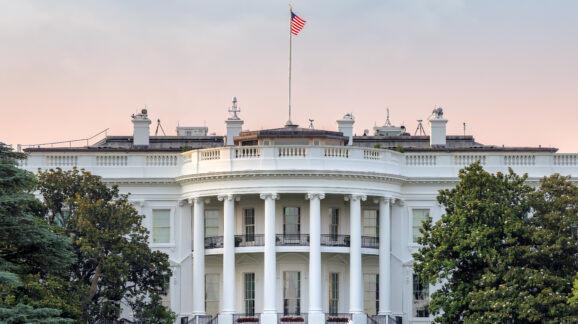There are two main areas in which Congress can enact meaningful reform. The first is to rein in regulatory guidance documents, which we refer to as “regulatory dark matter,” whereby agencies regulate through Federal Register notices, guidance documents, and other means outside standard rulemaking procedure. The second is to enact a series of reforms to increase agency transparency and accountability of all regulation and guidance. These include annual regulatory report cards for rulemaking agencies and regulatory cost estimates from the Office of Management and Budget for more than just a small subset of rules.
In 2019, President Trump signed two executive orders aimed at stopping the practice of agencies using guidance documents to effectively implement policy without going through the legally required notice and comment process.
Featured Posts

Blog
Trump executive order establishing a portal for regulatory dark matter
Even at the insistence of Congress in 2018, 46 federal agencies could only uncover only about 13,000 of their guidance documents and policy statements…

Blog
The week in regulations: Nuclear fees and unintentional otter injuries
The possible war with Iran did not escalate. The reconciliation bill debate continued, as did presidential pressure on the Federal Reserve to lower rates. U.S.

Blog
The week in regulations: FAA ethics and Postal Service justice
Social Security will go bust in 2033. War with Iran is a real possibility. The Federal Reserve held interest rates steady, as expected. It is…
Search Posts
Blog
Your family’s share of federal red tape last year was…
Most people can see taxes on their pay stubs, but there’s another sort of tax that’s much less visible: the cost of government regulations. These…
Blog
The week in regulations: Paper packaging promotion and bridge conditions
President Trump ordered National Guard troops to deploy against American citizens. Agencies issued new regulations ranging from hot air balloons to authorizing ski areas. On…
Blog
The total cost of federal red tape last year was…
$2.15 trillion is CEI’s latest estimate of the costs of all federal regulations. It is an intentionally conservative estimate. Think of it as a floor,…
Blog
DOGE after Musk: From meme to momentum
Elon Musk’s short but headline-grabbing stint with the Department of Government Efficiency (DOGE) has concluded, but the broader deregulatory agenda remains robust and far from…
Blog
The week in regulations: Low-moisture human foods and grass promotion
Lots of transportation-related regulatory cleanup this week. Friday alone had 47 proposed rules, most of them to repeal obsolete regulations. Two courts struck down Trump’s…
Blog
Deregulation deferred—not defeated—by the Big Beautiful Bill
In my latest Forbes column, I detail how the House-passed “One Big Beautiful Bill” (BBB) had the potential to revolutionize federal regulatory policy. But…
Staff & Scholars

Clyde Wayne Crews
Fred L. Smith Fellow in Regulatory Studies
- Business and Government
- Consumer Freedom
- Deregulation

Ryan Young
Senior Economist
- Antitrust
- Business and Government
- Regulatory Reform

Fred L. Smith, Jr.
Founder; Chairman Emeritus
- Automobiles and Roads
- Aviation
- Business and Government

Sam Kazman
Counsel Emeritus
- Antitrust
- Automobiles and Roads
- Banking and Finance

Marlo Lewis, Jr.
Senior Fellow
- Climate
- Energy
- Energy and Environment